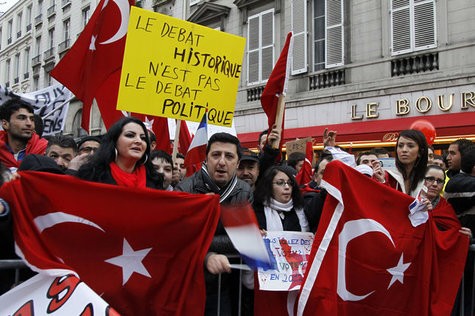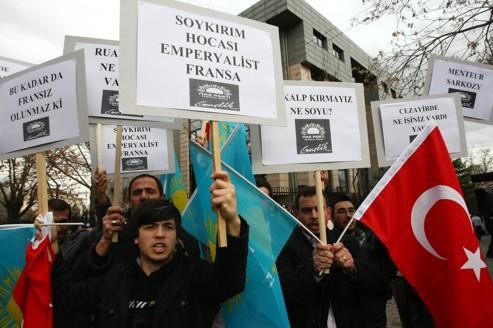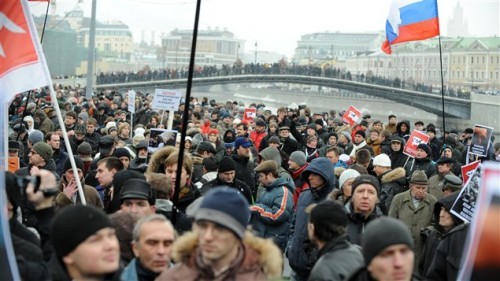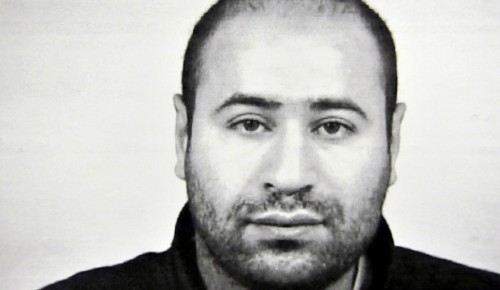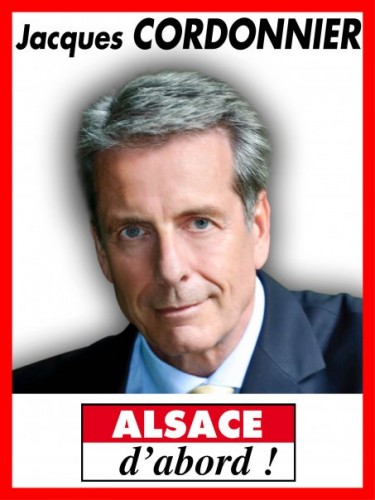 Ex: http://mbm.hautetfort.com/
Ex: http://mbm.hautetfort.com/
Pour Jean-Loup Izambert, journaliste indépendant et écrivain, qui publie son septième ouvrage (1) sous le titre de Pourquoi la crise ? aux éditions Amalthée, la crise du capitalisme est devenue totale. Contrairement aux déclarations de certains économistes et politiciens, il affirme qu’il n’y aura pas de sortie de crise. Pour l’auteur de la seule investigation journalistique sur les origines de la crise(2), le système capitaliste ne peut survivre que par la guerre. Quelle alternative pour les peuples ? Entretien.
Geostrategie : Vous démontrez dans votre livre Pourquoi la crise ? que le capitalisme ne peut plus supporter la démocratie parlementaire avec laquelle il s’est développé. Sommes-nous à un point de rupture avec ce système et les valeurs de liberté, d’égalité, de fraternité ?
Jean-Loup Izambert : C’est évident. Pourquoi et quelles données changent par rapport aux dernières décennies ? Dans ce système les grands propriétaires privés de l’économie contrôlent l’économie et tentent de l’imposer par tous les moyens comme régime aux peuples de la planète, y compris par la guerre. C’est ce qu’ils ont toujours fait avec la seule préoccupation de s’enrichir et de faire main basse sur les richesses des peuples au seul profit des sociétés transnationales qu’ils dirigent. Mais parvenu au stade de l’impérialisme, période actuelle du développement du capitalisme, les grands possédants ont besoin d’un pouvoir politique qui leur soit totalement dévoué pour protéger et accroître encore la concentration des richesses qu’ils cumulent. Il faut bien comprendre qu’il s’agit pour eux d’une question de survie, de rester maîtres du pouvoir et bien sûr de leur privilèges. L’une des contradictions qu’ils doivent gérer vient justement du fait que l’accumulation du Capital et la concentration des richesses qu’ils sont contraints de perpétuer sous peine de perdre pouvoir et privilèges implique aujourd’hui des centres de décisions de plus en plus fermés, dans l’entreprise comme dans la société. Or, cette tendance à la centralisation va à l’inverse de mouvement des sociétés qui pousse vers plus d’ouverture, de démocratie, de participation, de culture notamment avec le développement des sciences et des techniques.
Geostrategie : Quels faits caractérisent aujourd’hui cette concentration des richesses ?
J-L.I. : Aujourd’hui 200 sociétés transnationales contrôlent plus de 23% du commerce mondial et 1% des plus riches détient plus de 57% des richesses produites. L’augmentation des richesses conduit-elle à l’enrichissement des peuples ? Non. Au niveau mondial 103 200 personnes, pour la plupart propriétaires privés de l’économie, détiennent un patrimoine financier de plus de 30 millions de dollars, hors résidence principale et biens de consommation. Mais, si l’on se réfère aux statistiques de l’Organisation des Nations Unies, plus de 80 pays ont aujourd’hui un revenu par habitant plus bas qu’il y a dix ans. D’une part les peuples prennent de plus en plus conscience qu’ils ne profitent pas de l’augmentation des richesses produites, que plus les richesses se concentrent entre quelques mains plus la misère s’accroît dans les sociétés mais également que ce phénomène touche aujourd’hui le cœur même de l’Occident capitaliste qui s’en croyait à l’abri. Selon les chiffres du fisc étasunien, à la veille de l’aggravation de la crise 60 millions de personnes « vivaient » aux Etats-Unis avec moins de sept dollars par jour. Bien que dissimulée par les médias qui appartiennent aux milliardaires, la situation est analogue dans la petite Europe de Maastricht de 20 millions de chômeurs où 80 millions de citoyens – soit quand même 16% de ses 495 millions d’habitants – courent un risque de pauvreté, 17 millions sont répertoriées comme « très pauvres » et 70 millions d’autres n’ont pas accès à un logement décent selon les propres statistiques publiées par la Commission européenne et d’autres organismes « européens ». Dans ce contexte, les grands possédants de l’économie ont besoin de faire courber la tête aux peuples pour maintenir leur système d’exploitation.
Les dirigeants bourgeois organisent le déficit des nations
Geostrategie : Comment le pouvoir politique favorise-t-il ces grands propriétaires privés de l’économie ?
J-L.I.: De différentes manières. Cela va du vote de lois en faveur de la grande bourgeoisie, à une complicité évidente avec le système d’évitement fiscal qui appauvrit la collectivité jusqu’au vote de crédit pour des guerres régionales dans lesquelles vous voyez apparaître et se développer des Sociétés Militaires Privées (SMP) liées aux armées et services occidentaux et financées par les Etats et leurs transnationales. Les provocations répétées à coups de campagnes médiatiques contre la Fédération de Russie, la République Populaire de Chine, la République Islamique d’Iran ou d’autres mais aussi le soutien à des dictatures comme en Irak après avoir ravagé le pays par la guerre, dans plusieurs pays d’Afrique ou l’invasion et l’occupation de l’Afghanistan sont des illustrations de la tentation totalitaire du capitalisme. L’actuelle présidence française, son Premier ministre et son gouvernement sont au diapason de ce qui se passe dans tous les pays capitalistes sans exception : atteintes répétées aux libertés, vote de lois en faveur des grands possédants, réduction du rôle des assemblées élues – par exemple, avec la volonté de tenter de supprimer les communes ou les départements en France ou en réduisant le rôle du Parlement -, « dépénalisation du droit des affaires » qui a pour conséquence de laisser faire le pillage de la nation par les grands propriétaires privés de l’économie, retrait du rôle de l’Etat dans ses fonctions essentielles de la santé, de l’éducation, du logement, du développement économique et de l’emploi, engagement dans des guerres et occupations de pays contre l’intérêt des peuples.
Geostrategie : La dégradation de la situation économique ne dépend donc pas seulement de la crise comme les médias de masse tentent d’en accréditer l’idée ?
J-L.I. : Comme je l’ai dit, la crise est liée à la nature même du capitalisme. Elle prend une ampleur que n’a jamais connue le système alors que le pouvoir politique n’a cessé de border son lit. Par exemple l’actuel président français s’était engagé lors de sa campagne électorale à mettre en oeuvre une politique de plein emploi. Mais l’explosion du chômage et de la misère que nous connaissons aujourd’hui n’est pas le fait de la seule crise. Bien avant que celle-ci ne se manifeste brutalement, le gouvernement français UMP, à peine installé, procédait déjà à la suppression de dizaines de milliers d’emplois dans la fonction publique sur plusieurs années tandis que les dirigeants de grandes sociétés privées en programmaient la liquidation de centaines de milliers d’autres dans tous les secteurs d’activité. Cette politique au service de la concentration du Capital n’est que la continuité des précédentes politiques menées par les gouvernements de droite comme de gauche. En fait le rôle de l’Etat bourgeois se borne à protéger les intérêts des grands possédants contre l’intérêt général avec pour conséquence l’aggravation du déficit budgétaire, l’endettement de l’Etat et une misère grandissante pour le plus grand nombre. Un exemple : les sociétés transnationales qui auraient dû payer plus de 33 milliards d’euros d’impôts pour la seule année 2006 en ont réglé 6,1 milliards avec la bénédiction de l’Etat ! Dans le même temps, ces entreprises qui ne créent pratiquement pas d’emplois, organisent des plans de licenciements, exportent une partie de leurs bénéfices pour échapper à l’impôt ont reçu de l’Etat 65 milliards d’euros d’aides de toutes sortes et bénéficié de milliards d’euros d’exonérations fiscales. Pour vous donner une idée, sur deux années, cela représente environ 130 milliards d’euros soit pratiquement l’équivalent du budget annuel européen pour la période 2007-2013 ou le montant du déficit record du budget de la France fin 2009 contre 56,3 milliards en 2008. La dette publique de la France atteint aujourd’hui des sommets en se situant, selon l’INSEE, à 1413,6 milliards d’euros pour le premier trimestre 2009 soit 72,9% du Produit Intérieur Brut (montant des richesses créées dans un pays sur une année entière). De même, l’Etat et les dirigeants des grandes sociétés privées doivent des milliards d’euros à la Sécurité Sociale qui ont déjà été payés par les salariés aux entreprises et les consommateurs mais ne sont toujours pas reversés à l’organisation de solidarité nationale par le grand patronat. Voilà comment le gouvernement organise les déficits. Quand le Président de la République et les ministres de l’Intérieur qui se succèdent affirment « qu’il n’y a pas de zone de non droit » en ciblant la jeunesse amputée d’avenir qui se révolte, ils se moquent ouvertement du monde. Les premières zones de non droit se situent au sein même de structures de l’Etat et elles sont le fait de leur politique qui conduit le pays à la ruine ! Ce n’est qu’un aspect qui explique aussi la violence du système vis-à-vis de toutes les résistances qu’il rencontre et de celles qui en découlent de manière plus générale dans les rapports sociaux.
Geopolitique : La violence est donc liée à la fin du système ?
J-L.I. : Oui, un peu comme les derniers sursauts d’une bête blessée à mort. Elle se manifeste par le rejet brutal de millions d’hommes et de femmes du système de production, leur mise à l’écart de la vie sociale, du logement, de la santé, de la culture. Elle se manifeste également par la destruction de pans entiers de l’économie, de régions et de pays comme en Yougoslavie, en Irak, en Palestine, en Amérique centrale ou en Afrique où les derniers « rois-nègres » ne doivent leur trône qu’à la corruption débridée de transnationales et, parmi d’autres, au pouvoir élyséen. Le capitalisme est un système criminel qui a fait la prospérité d’une caste de milliardaires sur la mort de centaines de millions d’êtres humains, sur les souffrances les plus atroces des peuples sur tous les continents par la famine, la surexploitation, le colonialisme, la guerre. Et cela continue. Au moment où nous parlons, selon les chiffres de l’Organisation des Nations Unies, une personne meurt de faim – « seulement » de faim, épidémies et guerres non comprises – toutes les quatre secondes. Dans le même temps les dirigeants occidentaux en sont à faire payer les paysans par les contribuables à coups de primes pour mettre leurs terres en friches, à détruire des pêches entières par des règlements imbéciles décidés par les bureaucrates de Bruxelles. Et au moment où nous parlons ce sont plus de 350 millions d’enfants de 6 à 17 ans qui sont surexploités par les transnationales capitalistes sur tous les continents dans presque tous les types d’industrie, de l’Asie aux Etats-Unis(3). Si ce n’est de la violence et de l’égoïsme, qu’est-ce donc le capitalisme ?!
Une exigence de destruction
Geostrategie : Dans votre livre vous rapportez le témoignage de plusieurs intervenants de différents milieux et pays dont certains évoquent une crise totale contrairement aux précédentes. Quels changements avec les crises précédentes ?
J-L.I. : Effectivement la crise est presque mondiale par le fait qu’elle touche tout le système capitaliste. Des pays comme la Fédération de Russie, la République Populaire de Chine, Cuba, le Venezuela révolutionnaire du président Hugo Chavez, le Brésil, la République démocratique du Vietnam ou d’autres comme la République Islamique d’Iran sont moins touchés car ils sont, pour des raisons diverses – historiques, politiques, culturelles, économiques – moins imbriqués dans le système capitaliste, ses réseaux commerciaux, bancaires et financiers. Jusqu’à présent nous devions faire face à des crises conjoncturelles du capitalisme, des périodes où la concentration du Capital s’accélérait brusquement en mettant en difficulté momentanée des monnaies, des économies, des pays. Face à cette situation inédite il était important que je donne la parole à des intervenants de différents milieux tous concernés par la banque, la finance, l’organisation d’entreprise et de la société. Quelques français comme le Président du groupe Crédit Agricole Société Anonyme, un commissaire aux comptes ou un important cabinet d’avocats d’affaires parisien ont refusé de débattre de la situation et de répondre à des questions portant sur l’évolution de l’activité de leur secteur professionnel dans le contexte actuel. La plupart ont joué le jeu et apportent, comme vous avez pu le lire, une contribution importante à mon travail par leur vécu mais également par leur propre réflexion et leurs travaux. C’est le cas du président Etienne Pflimlin du groupe bancaire mutualiste Crédit Mutuel-CIC, de Pierre-Henry Leroy, fondateur et dirigeant de Proxinvest, l’une des plus importantes sociétés de conseil aux actionnaires, du président Alban d’Amours du Mouvement des Caisses Desjardins, l’un des plus importants instituts financiers du Canada de forme coopérative, d’Hervé Sérieyx, haut fonctionnaire, dirigeant de société, chercheur et conseil en organisation d’entreprise, de Mark Schacter au Canada qui est conseil international en organisation d’entreprise, de l’Institut Canadien des Comptables Agréés faute de trouver un européen qui daigne répondre à de simples questions de droit sur la transparence de gestion et la validité des comptes des transnationales, du réseau SWIFT spécialisé dans les transactions internationales, d’un syndicaliste de la CGT fin connaisseur du monde bancaire ou encore de magistrats comme Jean de Maillard, spécialisé dans les nouvelles formes de criminalité financière, des avocats d’affaires et bien entendu des responsables du mouvement Coopératif international. La rencontre de tous ces acteurs de l’entreprise, de la finance, de la banque, du droit au sein d’un même lieu – un livre -, la transmission aux lecteurs de leur expérience comme de leurs idées et de leurs propres travaux permet de dresser un tableau aussi précis que possible de la situation actuelle pour mieux comprendre les origines et mettre en exergue les responsables de la crise. De même cette démarche permet de mon point de vue de tenter d’esquisser les possibles d’un nouveau mode d’organisation et de gestion économique et social. Ainsi que l’explique Sherron Watkins, l’ancienne vice-présidente de la société étasunienne Enron, transnationale de l’énergie faillie en décembre 2001, la crise du capitalisme est désormais totale. Elle touche tout le système : économie, finance, groupes de surveillance du monde des affaires et institutions internationales, politique, morale et idéologie. La continuité de ce système s’accompagne aujourd’hui d’une exigence de destruction de tout ce qui entrave la concentration des richesses par les grands possédants. Ils appellent cela « déréglementation », « privatisation », « libéralisation » ou « mondialisation » et couvrent la répression, l’esclavage, le colonialisme et la dépendance des mots de « sécurité », « liberté », « droits de l’Homme » n’ayant plus que le mensonge, la tromperie et la falsification pour camoufler la fin de leur système.
Geostrategie : Mais ces pouvoirs sont l’émanation du suffrage universel, du vote des peuples. Si l’on pousse le raisonnement à son terme doit-on en conclure que les peuples occidentaux souhaitent le capitalisme ?
J-L.I. : Effectivement, les peuples occidentaux se sont prononcés jusqu’à aujourd’hui en faveur de représentants du capitalisme, pratiquement sans rien connaître du reste de la nature de celui-ci ni même envisager où ce système les conduit à l’heure actuelle. Prenons l’exemple de la France. En 1981, lors des élections présidentielles puis des élections législatives qui ont suivi, le peuple français a eu l’occasion de choisir entre la continuité du système symbolisée par les partis conservateurs et la rupture que proposait à l’époque le Parti Communiste Français avec le Programme commun de gouvernement des forces de gauche auquel était associé le Parti Socialiste et les radicaux de gauche. Ce Programme commun de gouvernement était lui-même l’aboutissement d’années d’engagement des communistes français pour ouvrir une voie nouvelle dans la construction d’une démocratie avancée. Ce programme venait en effet après plusieurs grandes campagnes nationales du PCF et l’élaboration et la diffusion du propre programme du PCF à des millions d’exemplaires sous le titre de « Changer de cap », programme pour un gouvernement démocratique d’union populaire. Pour la préparation de celui-ci les militants communistes ont mené à l’époque de grandes campagnes d’information, de débats, collecté sur plusieurs mois avec « les cahiers de la misère » le vécu et les espoirs du peuple dans les campagnes, les quartiers, les usines, les universités. Tout cela a permis d’aider les gens dans leurs problèmes quotidiens – par exemple en s’opposant aux licenciements dans des entreprises qui réalisaient des profits ou à empêcher des saisies-expulsions – tout en débattant avec eux des changements à mettre en œuvre pour une nouvelle politique nationale. Au moment du vote, lors des élections présidentielles et des législatives qui ont suivi, une majorité de votants a cédé aux campagnes médiatiques anticommunistes et s’est réfugiée dans le giron du Parti Socialiste. Une fois au pouvoir, celui-ci s’est empressé d’abandonner ses engagements sous la pression de la bourgeoisie et du gouvernement étasunien qui s’opposait à la présence de ministres communistes dans le gouvernement français. Toutes les transformations radicales contenues dans le programme commun de gouvernement, tout particulièrement les nationalisations des secteurs clés de l’économie, le développement de la démocratie et toute mesure qui permettait de rompre avec le système ont ainsi été abandonnées par la « génération Mitterrand ». Démonstration a été faite une nouvelle fois que sans parti révolutionnaire, sans mobilisation et soutien à des propositions de rupture avec le système, il ne peut y avoir de réel changement. Si les mesures préconisées par le PCF avaient reçu à l’époque un large soutien populaire, le cours des choses aurait été bien différent, y compris la question européenne. Du reste, si vous relisez aujourd’hui « Changer de cap », le programme du PCF, ou même le Programme commun de gouvernement de 1972, vous constaterez avec le recul du temps et en regard de la situation actuelle le bien fondé des propositions de l’époque dont certaines ne demandent qu’à être actualisées. Chacun doit donc assumer ses responsabilités face à l’Histoire. Le passage à la construction d’une société socialiste ne peut se faire que sur la base d’un rapport des forces sociales et politiques favorables au peuple et ne peut être que le résultat de sa volonté et de sa lutte. Une trentaine d’années plus tard le peuple français, sans tirer les leçons de ses expériences, continue de voter tantôt à gauche, tantôt à droite sans avoir encore conscience qu’il confie en réalité son pouvoir aux mêmes maîtres de la finance et de l’économie. La politique qu’il vit au quotidien reste par conséquent la même et rien ne change dans l’entreprise, dans la vie économique à laquelle il consacre l’essentiel de son existence. Bien entendu, la situation s’est aggravée au fil des trois décennies qui se sont écoulées depuis 1981 et il commence à payer chèrement sa marche « droite-gauche-droite-gauche » à coups de chômage, d’impôts, de taxes, d’exclusions, de restrictions, de lois liberticides et de guerres. Mais il ne peut s’en prendre qu’à lui-même car c’est en dernier ressort lui qui décide, par ses luttes et ses votes. Souvenons-nous toutefois que l’Histoire a montré que les révolutions ne sont pas prévues dans les calendriers électoraux de la bourgeoisie.
La priorité est à l’action sur des propositions révolutionnaires
Geostrategie : La responsabilité serait-elle uniquement le fait d’un peuple ignorant de la chose politique et de sa propre histoire ou plus préoccupé par ses « petits problèmes » que du devenir de la société et de la planète ?
J-L.I. : Non, bien évidemment. La crise n’incite pas à la réflexion et à l’action. Les médias qui sont la propriété privée des milliardaires par banques et sociétés de communication interposées jouent un rôle important dans la désinformation et l’abrutissement des masses. Le fait qu’un navet comme le film « Bienvenue chez les Chtis » soit élevé au rang de succès cinématographique ou que des foules honorent comme un dieu la mort d’un pantin médiatique comme Michael Jackson qui, en dehors du fait qu’il n’a rien apporté d’essentiel à la musique, se droguait, couchait avec des petits enfants et s’était fait tirer et blanchir la peau pour ne plus être noir en dit assez long sur le niveau culturel d’une frange des sociétés occidentales. Nous sommes bien loin des grands musiciens et chanteurs comme King Oliver, Sindey Bechet, Count Basie, Louis Armstrong, Ray Charles, Otis Redding ou d’autres dont les musiques populaires traversent les générations ! Ce n’est qu’un aspect des conséquences des batailles que se livrent les transnationales étasuniennes, européennes et japonaises pour le contrôle des grands moyens de communication, des groupes de presse aux satellites en passant par les majors du cinéma. Sans doute le peuple sortira-t-il de son hibernation politique lorsque nous passerons de « Qui veut gagner des millions ? » à « Qui va partir à la guerre ? »… Depuis les années quatre-vingt, les dirigeants du PCF ont commis de lourdes erreurs stratégiques. Comme s’ils n’avaient pas compris les leçons du passé, ils continuent de rechercher des alliances électorales avec d’autres partis réformistes au lieu de privilégier des propositions pour éveiller les consciences, organiser de grands débats nationaux sur les questions essentielles et rassembler dans l’action avec audace. Lorsqu’un parti ou un mouvement posera des questions comme « Comment contrôler le système bancaire et financier ? », « Quelle organisation bancaire et financière pour l’économie ? », « Quelles mesures pour la gestion démocratique des entreprises ? » ou « Comment rendre à l’assemblée du peuple sa représentation nationale ? », questions dont les réponses sont essentielles pour s’engager dans une rupture avec le système, alors la société commencera à s’éveiller. Et dans l’immédiat, il ne faut pas compter sur les états-majors syndicaux qui sont surtout préoccupés de canaliser le mécontentement afin d’éviter les grandes colères qui commencent à gronder. Il est particulièrement lamentable de voir des représentants syndicaux négocier la diminution du nombre de licenciés dans des entreprises en pleine santé financière quand ceux-ci devraient non seulement appeler à la lutte pour le maintien et le développement de l’emploi, exiger des licencieurs l’ouverture des comptes de l’entreprise et se battre pour des droits nouveaux afin de participer à leur gestion. Dites-moi un peu à quoi servent les comités d’entreprises quand des salariés découvrent du jour au lendemain des plans de licenciements prévus de longue date ?! Avez-vous remarqué comment le mouvement radical de séquestration de responsables de ces plans de licenciements né à la base a été enrayé ? Ce type d’action très intéressant a pratiquement disparu des journaux télévisés et autres du jour au le demain. Dans l’immédiat, entre des partis dits progressistes sans propositions révolutionnaires et des syndicats au minimum compatissants, le pouvoir des « compteurs de petits pois », pour reprendre la formule d’Hervé Sérieyx, ne pouvait pas mieux espérer.
Geostrategie : Est-ce à dire que la situation est politiquement bloquée et qu’il sera difficile de sortir de la crise ?
J-L.I. : L’idée selon laquelle il pourrait y avoir sortie de crise sans sortie du système qui l’engendre est une hérésie. Autant vouloir soigner une grippe sans tuer son virus. Cette chimère ne vise, une nouvelle fois, qu’à berner le peuple en lui faisant croire que l’avenir sera meilleur s’il accepte de nouvelles mesures antisociales comme par exemple le report de l’âge de la retraite à 65 ans. Ce n’est que la suite logique du « travailler plus pour gagner plus » développé par l’UMP. Il n’y aura pas de sortie de crise pour la simple raison que le capitalisme ne peut plus être aménagé. Vous avez pu remarquer combien les médias des puissances financières se font silencieux tant sur l’origine de la crise, ses conséquences générales et son extension dans d’autres pays. Il faut surtout éviter que les masses prennent conscience de l’ampleur des dégâts comme des responsables de la situation pour mieux les enfermer dans la fatalité et le renoncement à la lutte.
Nous ne sommes plus en démocratie
Geostrategie : Cela signifie-t-il que l’appauvrissement continu de la société va se poursuivre de manière plus brutale au détriment de l’intérêt général et au seul profit des grands propriétaires privés de l’économie ?
J-L.I. : Oui. Nous entrons dans une nouvelle période où le chômage s’accroît de manière considérable et où des millions de citoyens supplémentaires sont écartés du droit de vivre dignement de leur travail, où la collectivité humaine déjà menacée va encore s’appauvrir tandis que le clan des grands propriétaires privés de l’économie va continuer de s’enrichir. Selon le World Wealth Report publié par la banque d’affaires étasunienne Merrill Lynch et Cap Gemini « la croissance de la richesse des grands fortunes financières privées devrait être de 7,7% par an pour atteindre 59100 milliards de dollars à l’horizon 2012 ». Voilà des gens qui sont, eux, dispensés de l’allongement de la durée du travail comme de l’effort national que les gouvernements occidentaux tentent d’imposer aux peuples pour leur faire payer une crise dont ils ne sont pas responsables. Deux options se présentent : la continuité du système et la guerre ou la révolution. La première hypothèse va se traduire par un renforcement du caractère autoritaire du pouvoir politique, dernier stade de l’impérialisme avant la dictature et la guerre, la guerre économique conduisant toujours à la guerre totale. C’est ce à quoi nous assistons en France comme dans la plupart des pays capitalistes. Le pouvoir politique devient plus autoritaire, toutes les libertés sont graduellement réduites sous prétexte de prévention, de sécurité et d’ordre, les assemblées élues sont amoindries dans leur pouvoir de décision et d’intervention, qu’il s’agisse des collectivités, des comités d’entreprise et autres. A ce stade, la bourgeoisie dispose encore des moyens de diviser le peuple en favorisant des « faux-nez » d’opposition comme le Parti Socialiste en France et en introduisant dans la vie politique des courants rétrogrades dont elle sait qu’ils contribueront à jeter le trouble dans la bataille d’idées. C’est le cas du mouvement Vert ou prétendument écologiste qui a germé sur une conséquence du capitalisme – la détérioration de l’environnement humain par les transnationales – et grandit sur son fumier sans remettre en cause le système, les causes profondes de cette détérioration.
Geostrategie : Pourtant le mouvement écologiste dénonce la destruction de l’environnement ?
J-L.I. : Bien sûr et le Parti Socialiste dit vouloir s’opposer à la politique du Premier ministre de Nicolas Sarközy de Nagy-Bocsa. Mais vous pouvez dénoncer tout ce que vous voulez, cela ne gêne nullement la bourgeoisie du moment que vous ne vous en prenez pas à l’essentiel, à la cause, à l’origine de cette destruction : son pouvoir politique et celui des puissances financières, son système et son mode de gestion des entreprises et des sociétés humaines. Le discours de ces écologistes opposés, par exemple, à la maîtrise et au développement de l’énergie nucléaire rappelle ces mentalités arriérées qui accusaient dans les années 1830 les premiers trains à vapeur de répandre la tuberculose dans les campagnes. Quant à la LCR-NPA, quelle que soit ses changements de nom, cette organisation a toujours contribué à diviser et affaiblir le mouvement populaire avec une phraséologie pseudo-révolutionnaire et elle doit être combattue comme telle. Elle est du reste complètement absente des mobilisations ouvrières contre la crise.
La question du Front National
Geostrategie : Et le Front National ?
J-L.I. : Il en va un peu de même pour le Front National qui dénonce les puissances financières mais dont le programme politique n’envisage aucune mesure économique radicale pour mettre un terme à leur domination et contraindre les maîtres de l’économie à rendre gorge. Contrairement aux campagnes de ce parti, ce ne sont pas les immigrés qui sont responsables du chômage. Je parle bien entendu de l’immigration qui vient travailler en France avec une qualification, s’y former dans le cadre de contrats avec des entreprises ou des universités ou y est présente depuis plusieurs génération et non de l’immigration clandestine issue de l’aggravation de la misère qui déserte son combat national pour changer l’ordre des choses. Cette dernière, la plupart du temps inculte, sans formation, analphabète, parfois trafiquante au-lieu d’être parquée dans des camps de rétention aux frais des contribuables devrait être reconduite aux frontières sans atermoiements. Essayez donc comme français de vous rendre clandestinement, « sans papiers », dans un pays d’Afrique ou même en Albanie pour juger de l’hospitalité qui vous sera réservée…Ce qui coûte cher à la France c’est le grand patronat qui attire et utilise cette main d’ouvre bon marché et inculte pour briser le tissu social et les avancées démocratiques qui sont autant d’obstacles à son enrichissement. Et quand cela lui est insuffisant, il délocalise les entreprises, comme le groupe Michelin, pour faire du chômage en France et produire à moindre coût et bien souvent à qualité inférieure dans des pays à la main d’œuvre corvéable à merci. Je le rappelle : 350 millions d’enfants sont actuellement surexploités par les transnationales à travers le monde ! Je rappelle également, puisque personne n’en parle, que le grand patronat français a reçu près de 65 milliards d’euros de subventions de l’Etat tout en bénéficiant de 8,5 milliards d’euros d’exonérations fiscales, de 25 milliards d’euros au titre d’une ribambelle de prêts bonifiés et de la baisse du coût du travail, etc. (4) Dans le même temps l’Etat ne budgétisait que 6 milliards d’euros pour le logement et 5 pour une justice qui se situe déjà parmi les derniers pays d’Europe par son budget !… Ce qui coûte cher à la France, c’est le grand patronat, le chômage qu’il fabrique et son organisation corrompue, le Medef. Le Front National ne reconnaît pas la lutte des classes, condition essentielle du combat pour l’émancipation humaine, raison pour laquelle il ne pourra pas mener jusqu’au bout le combat qu’il prétend mener, ce qui ne veut pas dire qu’il n’aurait pas un rôle à jouer. Mais pour prétendre être « front » et « national » sans doute faudrait-il qu’il se réfère plus à l’avenir qu’au passé dans son discours et ses propositions et que ses militants n’hésitent pas à se trouver aux côtés des travailleurs en lutte pour la défense de leur avenir au lieu de pratiquer un discours antisyndical d’un autre âge. Quand le Front National désignera pour cible le clan des milliardaires qui pille la France au lieu des immigrés qui contribuent à l’enrichir par leur travail, quand ce parti proposera et appellera à la lutte pour nationaliser la haute finance, rendre à la nation ce qui lui appartient, développer la démocratie directe, alors celui-ci commencera à être crédible comme « front national ». Cette logique s’inscrirait d’ailleurs dans la lignée de ses propositions pour une «Europe des peuples » par opposition à « l’Europe des banques ». Pour l’heure il reste enfermé dans un discours anticommuniste, antisyndical, anti-fonctionnaire et s’accroche aux oripeaux du système comme l’église catholique – je parle bien entendu de l’institution et non de la croyance, même si je suis athée – et s’oppose ainsi à tout grand rassemblement national sur des propositions de rupture. Imaginez la force que représenteraient le rassemblement et la mobilisation des organisations – partis politiques, syndicats, associations, etc. – agissant de concert sur des objectifs communs de rupture, chacun conservant, bien évidemment, son identité. Un Front National ouvert, démocratique, aux propositions novatrices, en prise avec la société en lutte pourrait jouer ce rôle de rassembleur. Après chacun prendra ses responsabilités de l’accompagner ou non sur les objectifs en question mais la clarté serait faite dans la société sur qui défend réellement l’intérêt général des français. Pourquoi le Front National ne soutient-il pas les travailleurs qui séquestrent les licencieurs dans des entreprises en bonne santé pour exiger des droits nouveaux dans les entreprises ? Visiblement, les propositions de changement font défaut et se limitent plutôt aux périodes électorales qu’au vécu quotidien des français. Bien entendu le rejet du Front National par la classe politique est injustifiable. Mais pour une part, il porte la responsabilité de cette situation en ne désignant pas les vrais responsables de la crise et en restant enfermé dans un carcan droitier et populiste qui l’empêche, pour partie, de prétendre à devenir national et populaire. Des dirigeants trop souvent issus de partis bourgeois ou à « l’idéologie de reclus » s’identifient par leur propos et leur image plus aux forces du passé qu’à une force porteuse d’avenir et de changement radical. Même si aucune perspective de changement réelle n’existe à l’heure actuelle, la grande bourgeoisie est très préoccupée par la réduction de son assise populaire. Plusieurs faits en attestent comme ses tentatives répétées de faire voter plusieurs fois les peuples ou de remplacer un vote populaire sur des questions qui engagent toute la nation par celui du Parlement lorsque leurs votes ne lui conviennent pas, la tentative de se fabriquer des circonscriptions sur mesure, etc. Nous ne sommes plus en démocratie…
Les forces vives de la nation absentes du Parlement
Geostrategie : …Parlement dont les membres sont pourtant élus par le peuple ?
J-L.I. : Oui, mais les Parlements ne représentent plus vraiment les peuples dans les pays occidentaux et leurs élus nationaux sont de plus en plus coupés des citoyens. Je n’évoque même pas le cas du Sénat français qui est une assemblée inutile et coûteuse qui devra être supprimée afin de renforcer les moyens et l’efficacité de l’assemblée des représentants de la nation. Si vous vous intéressez à la composition de l’Assemblée Nationale française, vous constaterez que sur les 577 députés, ne figure qu’un seul député issu de la classe ouvrière, le député communiste Maxime Gremetz, et un seul salarié agricole, le député des Pyrénées-Atlantiques Jean Lassalle qui est technicien agricole. Quant aux artisans, la « première entreprise de France », selon leur slogan, ne compte que deux élus ! Par contre vous trouvez vingt-deux « sans profession déclarée » parmi lesquels dix-neuf UMP, la plupart fils et filles de petits bourgeois, quinze permanents politiques, tous de l’UMP et du PS, qui faute de faire métier ont fait carrière dans la fonction d’élu et n’ont jamais participé aux forces vives de la nation, trente-huit avocats et, toutes catégories confondues, 184 fonctionnaires dont l’essentiel n’est pas représentatif de la fonction publique, exception faite des enseignants qui forme le gros de cette troupe avec les hauts fonctionnaires. Dans les faits, ce Parlement français n’est pas représentatif de la société française dans sa composition socioprofessionnelle. Les forces vives, classe ouvrière en tête, celles qui font le pays et connaissent les problèmes du quotidien, les drames de la vie sont quasiment absentes du lieu où se décident les lois ! Où sont les ouvriers, les marins-pêcheurs, les paysans, les ingénieurs, cadres et techniciens ? Ceux qui font vivre la France dans ce qu’elle a d’essentiel, de généreux, de génie créateur délèguent en masse leur voix et leur pouvoir à de petits bourgeois et à des politiciens carriéristes qui, une fois élus, ont tôt fait de les oublier ! De plus, le mode de scrutin ne permet pas une véritable représentation du peuple. L’Assemblée Nationale française est bien moins démocratique dans sa composition et son fonctionnement que la Douma en Fédération de Russie dans laquelle tous les partis ayant obtenus un minimum de suffrages sont représentés. En France, lors du premier tour des élections législatives de juin 2007, l’UMP s’est attribué 98 députés avec 10,28 millions de suffrages alors qu’il en a fallu 6,43 millions au Parti Socialiste pour en obtenir un seul ! Quant au PCF et au Front National ils n’en obtenaient aucun avec un peu plus de 1,11 millions chacun ! Le propos n’est pas de savoir si l’on est d’accord ou pas avec la politique proposée par ces partis mais de constater que le mode de scrutin ne permet pas une représentation équitable des courants de pensée de notre société. Le second tour de scrutin avec ses alliances opportunistes et politiciennes ne fait qu’aggraver la situation en excluant des millions d’électeurs de leurs choix et de la représentation nationale. Faute de proportionnelle intégrale, un français sur trois n’est pas représenté au Parlement.
Geostrategie : S’il n’y a pas grand-chose à attendre des partis politiques et des assemblées élues, comment les citoyens peuvent-ils modifier le cours des choses ?
J-L.I. : La démocratie est d’abord ce que les citoyens en font. Ils peuvent intervenir auprès des maires des communes, généralement plus accessibles pour changer la donne sur des problèmes locaux mais également auprès des députés pour des questions qui relèvent de la politique nationale. Les citoyens peuvent très bien se grouper et agir sur des objectifs de rupture avec le système – par exemple, refuser tout licenciement dans les entreprises qui font des profits, s’opposer aux délocalisations, exiger la construction de nouveaux logements, l’embauche de professeurs pour les écoles, de personnels pour les hôpitaux, les services postaux, etc. – et obliger leurs élus à s’engager sur leurs revendications, à leur rendre des comptes sur leurs votes dans les assemblées, ce qui ne sa fait pratiquement plus. Mais les questions fondamentales du passage à une démocratie politique avancée et du contrôle des grands moyens de production, de financement et d’échange reste toujours à conquérir. D’une manière générale, de mon point de vue, les luttes sociales demeurent encore bien en retrait dans leur contenu et leur combativité pour faire front aux attaques dont le monde du travail est l’objet. Mais l’entreprise reste le cœur des batailles à venir : c’est là que les salariés doivent agir pour obtenir de nouveaux droits leur permettant de participer à la gestion et de bénéficier des bons résultats auxquels ils contribuent. Dans les faits comme l’explique Hervé Sérieyx dans mon livre, « il s’agit de passer du « personnel-instrument » au service de l’organisation à « l’organisation-instrument » au service des personnes. » Il s’agit de cheminer d’une organisation d’entreprise destinée à gérer la docilité à une organisation qui suscite chez chacun de ses membres le désir d’y devenir un acteur engagé. La route est difficile mais les partis politiques classés habituellement comme « progressistes » ont failli à leur tâche. Il ne suffit pas que le monde capitaliste s’écroule pour qu’une nouvelle société prenne le relais. L’émancipation du peuple sera l’œuvre du peuple lui-même et à ce jour l’absence d’un courant révolutionnaire important fait défaut pour éclairer les citoyens sur des propositions de rupture avec le système finissant. C’est l’outil qui manque pour favoriser cette transformation politique et sociale. Le peuple est égaré, ce qui ne veut pas dire qu’il n’est pas en attente ou demandeur de solutions pour changer la vie.
Des premières mesures d’un gouvernement révolutionnaire
Geostrategie : Quelle seraient les premières mesures que devrait prendre un gouvernement révolutionnaire ?
J-L.I. : Le pouvoir devra immédiatement stopper toutes transactions financières internationales le temps de procéder immédiatement à la nationalisation de la Banque de France et du secteur bancaire et financier, exception faite des sociétés coopératives de banque qui présentent dans leurs principes de critères de gestion démocratiques. L’un des premiers objectifs du nouveau pouvoir devrait également consister à donner de nouveaux droits aux sociétés coopératives, tout particulièrement afin que leurs sociétaires disposent des moyens réels de faire respecter les principes de gestion par les dirigeants quand ce n’est pas le cas. La banque et la finance sont le cœur de l’activité économique et c’est d’abord là que des mesures nationales et radicales doivent être prises avant d’envisager par la suite une action de proposition plus importante au niveau européen et international, à l’ONU par exemple ou par d’autres organisations internationales. De même, il devra formuler dans un second temps des propositions pour changer ces vieux outils du capitalisme (Fonds Monétaire International, Banque Mondiale, Organisation Mondiale du Commerce, etc.) Sur ces points, le gouvernement de Vladimir Poutine de la Fédération de Russie peut permettre d’avancer rapidement puisqu’il est déjà prêt à agir, à proposer et à soumettre au débat des solutions. Il ne faut pas perdre de vue que les mesures qui permettraient d’envisager un avenir meilleur sont également valables pour tous les peuples. Parler de la « réglementation de la vie économique » ou de « réguler les marchés financiers » comme le président français et ses homologues occidentaux en passant sous silence la nationalisation du secteur bancaire et financier ou la gestion démocratique des entreprises, en ne s’attaquant pas aux puissances financières c’est tromper les gens en discourant sur des promesses que l’on est décidé à l’avance à ne pas tenir. Comment peut-on prétendre contrôler et réglementer l’économie sans contrôler et réglementer les banques, le cœur de la vie économique, sans unifier la « comptabilité financière » de l’Etat ?!
Geostrategie : Mais la nationalisation démocratique des banques est une opération difficile qui prendra du temps ?
J-L.I. : C’est l’idée que distillent dans l’opinion les milliardaires avec leurs médias qui ont pardessus tout peur de perdre ainsi la maîtrise de l’économie et leurs privilèges. Dans les faits cette opération qui ne présente pas de grande difficulté sur le plan technique peut aller très vite. L’individu qui aura 1500 euros sur son livret d’épargne comme celui qui possédera 15 millions d’euros sous forme d’actions, d’obligations ou autre garderont chacun ce qu’ils possèdent après la nationalisation. Ceux qui propagent l’idée inverse sont uniquement motivés par le fait d’entretenir la confusion entre nationalisation et confiscation des biens privés pour protéger leurs privilèges. Dans un premier temps, le nouveau pouvoir devra surtout voter des lois favorisant la démocratie dans les entreprises par de nouveaux droits pour la gestion et l’élection des dirigeants sur la base de leur formation, de leur compétence et de leur expérience. Les sociétés coopératives seront des outils précieux pour insuffler la démocratie dans l’économie. Comme vous avez pu le lire, je mets en valeur dans mon livre la contribution importante des sociétés coopératives au mouvement pour la gestion démocratique des entreprises en comparant leurs principes de gestion et leur vécu avec les critères des sociétés classiques ou capitalistes si vous préférez. C’est un chantier immense, ardu et passionnant.
Geostrategie : Qu’est-ce qui changerait si une telle mesure était mise en œuvre ?
J-L.I. : Disons que nous ouvririons la porte de la rupture avec le capitalisme en donnant aux acteurs de l’économie, et en premier lieu à la classe ouvrière et à ses alliés qui font fructifier le Capital par leur travail, des ouvriers des chantiers aux analystes financiers, les moyens de définir et contrôler la marche des entreprises auxquelles ils sont associés, la possibilité de s’intéresser à leur organisation, d’intervenir pour participer à leur transformation. Ce serait le début d’un long mouvement d’émancipation, d’appel aux intelligences, d’appropriation de l’économie par tous ses acteurs au profit de l’intérêt général. Par exemple, concernant les banques, comme j’en fais la démonstration dans mon livre avec l’intervention de spécialistes de la comptabilité des grandes entreprises, aucun contrôle effectif de ces établissement n’est actuellement réellement possible tant les capitalistes jouent sur des procédés extrêmement complexes et subtils pour en établir les bilans, les faire « contrôler », fonder des structures dans des places off shore, éviter l’impôt, spéculer à hauts risques avec des produits financiers ultrasophistiqués. Pourquoi avoir tant de banques qui offrent les mêmes produits financiers quand leur réunion en une seule – exception faite des banques coopératives où se trouvent en germe les principes d’une gestion authentiquement démocratique -, laissant à chacun ce qu’il possède, permettrait le contrôle réel du mouvement des capitaux au profit de l’intérêt général ? Cette nationalisation démocratique accompagnée de la démocratisation des coopératives permettrait à l’Etat de savoir où et comment circulent les capitaux, au profit de qui et de les faire revenir à l’économie réelle sous contrôle populaire. Ce serait un véritable poumon d’oxygène pour la société toute entière quand on sait qu’un niveau mondial les pertes annuelles de recettes fiscales par les gouvernements du monde provenant du seul évitement fiscal – fraude et blanchiment non compris – sont estimées à plus de 255 milliards de dollars.
Geostrategie : Les banques ont déjà été nationalisées ainsi que des sociétés transnationales. Pourtant rien n’a vraiment beaucoup changé à l’époque ?
J-L.I. : C’est exact et c’est la raison pour laquelle j’insiste sur l’aspect démocratique que devront avoir les nationalisations. Il ne s’agit pas de remplacer des dirigeants de droite par des dirigeants de gauche à la tête de ces entreprises pour que ceux-ci les gèrent de manière identique, comme des « compteurs de petits pois », sur la base de seuls critères financiers de profit maximum immédiat avec des hiérarchies bardées de pré carré, des atteintes répétées aux libertés démocratiques, une opacité de gestion et de trucage des comptes incompatibles avec la démocratie. Les dirigeants auront à mettre en œuvre immédiatement les décrets et lois du pouvoir révolutionnaire donnant de nouveaux droits aux salariés pour qu’ils puissent intervenir complètement dans la gestion, mettre un terme au détournement d’une partie des bénéfices par les dirigeants actuels des entreprises des secteurs clés de l’économie, démocratiser toutes les fonctions jusqu’à changer l’entreprise, faire que l’entreprise soit un outil au service de ses acteurs et de son environnement et non l’inverse comme aujourd’hui. C’est une étape décisive qui implique une élévation quantitative et qualitative de la conscience de ses acteurs mais également de l’environnement des professionnels qui l’accompagnent dans sa création et son développement : commissaires aux comptes, auditeurs, experts comptables, etc. Sans cela les nationalisations resteront lettre morte et deviendront, comme nous l’avons connu, des « étatisations ». C’est la raison pour laquelle ces grandes orientations du pouvoir pour aller vers une démocratie avancée doivent s’accompagner de ce que Pierrre-Henry Leroy, fondateur et dirigeant de Proxinvest, la principale société de conseil aux actionnaires, appelle « les petits pas ». Ainsi qu’il l’explique, il faudra initier des réformes plus modestes et locales qui vont dans le bon sens.
Geostrategie : Par exemple ?
J-L.I. : Par exemple d’abord décourager le grégaire et encourager la diversité d’opinion dans les marchés en mettant fin aux conflits d’intérêts des établissements financiers des groupes lors des opérations de marché. Comme le souligne Pierre-Henry Leroy, « ceci impose de recourir à des experts vraiment indépendants et non pas, comme aujourd’hui, payés et nommés par les intéressés. Une définition précise des conflits d’intérêts, des interdictions et des sanctions s’imposent. » Ou encore abolir les règlements qui alourdissent l’épanouissement de l’économie au profit de l’intérêt général, ce qui est d’autant plus facilement envisageable à partir du moment où ses acteurs disposent des moyens légaux et culturels favorisant leur intervention.
La seule issue pacifique à la crise : une révolution nationale et radicale
Geostrategie : Mais les économies étant aujourd’hui très liées d’un pays à l’autre avec la mondialisation capitaliste, pensez-vous qu’il soit possible de tenir tête aux dispositions européennes, aux règlements internationaux et aux pressions qui ne manqueraient pas de s’exercer sur une seule nation qui s’engagerait dans cette voie de rupture ?
J-L.I. : Votre question porte sur un point essentiel : le soutien du peuple à des réformes radicales. Un changement social de cette ampleur ne peut être le fait d’une seule avant-garde, aussi éclairée soit-elle. Si celle-ci est nécessaire pour formuler des propositions, porter le niveau de conscience à la hauteur des mesures indispensables, ouvrir le débat sur les questions essentielles, seul un grand soutien populaire à celles-ci peut permettre de rompre avec la situation actuelle, quelle que soit la voie de transition choisie par le peuple, électorale ou non. Le passage de la République du Venezuela d’un Etat sous domination étasunienne à un Etat démocratique, indépendant et progressiste est l’un des exemples les plus intéressants à étudier de notre époque. Toutes les attaques menées contre le gouvernement révolutionnaire du Venezuela, de l’intérieur par le grand patronat et les éléments conservateurs de l’église catholique et de l’extérieur par les Etats-Unis et d’autres pays avec certaines associations plus ou moins liées aux services étasuniens n’ont pu empêcher le processus de rupture de suivre son cours. Aujourd’hui le pays s’engage sur la construction d’une société socialiste en faisant l’apprentissage d’une authentique démocratie directe. Les secteurs clés de l’économie ont été nationalisés, les capitaux qui s’exportaient dans la poche de gros actionnaires étasuniens sont aujourd’hui injectés dans la modernisation des entreprises et des régions, des dizaines de milliers de coopératives se sont créées dans tous les domaines de l’activité économique et le pays se modernise au profit de ses citoyens. Ce qui paraissait impensable à une grande majorité du peuple se réalise aujourd’hui avec son soutien actif. Pourquoi cela a-t-il été possible malgré les accords régionaux, les règlements internationaux et les pressions de toutes sortes, jusqu’à des tentatives de coup d’Etat orchestrées par les Etats-Unis ? Parce que le peuple a su se constituer une avant-garde révolutionnaire exemplaire en bien des domaines, se rassembler, se mobiliser et le rester sur ses objectifs principaux de transformation politique et sociale radicale. Vos comprenez face à ces succès pourquoi le Venezuela révolutionnaire n’existe pratiquement pas dans les médias occidentaux. Le gouvernement français devrait se souvenir qu’il a plus besoin du Venezuela que le Venezuela n’a besoin de la France.
Geostrategie : Est-il possible de faire une telle révolution nationale et radicale en France ?
J-L.I. : Bien évidemment et c’est même la seule issue pacifique pour sortir de la crise et rompre avec le système actuel. Il est envisageable d’organiser en France le contrôle de toute la vie économique, d’opérer sa « réglementation » en la « débureaucratisant », de faire retourner à l’économie les capitaux que les capitalistes évitent de l’impôt et du développement des entreprises sans qu’il leur soit possible de dissimuler des biens et des revenus. Il n’y a nul besoin d’un appareil spécial de l’Etat puisque les salariés et les directeurs pourraient réaliser eux-mêmes la fusion immédiate de toutes les banques capitalistes en quelques semaines, par exemple sous l’autorité du ministère des Finances avec des congrès de travail réunissant les professionnels, cadres-dirigeants, représentants des propriétaires du Capital, salariés, syndicats, associations de consommateurs, etc. par banque, par région et nationalement. Il est évident que ceux qui s’y opposeraient ou feraient traîner les choses en longueur pour se livrer à des opérations malhonnêtes de dernière minute et entraver le processus de rupture en seraient exclus. Les avantages de la nationalisation du secteur bancaire seraient décisifs pour les PME, les collectivités et le peuple entier qui pourrait ainsi s’approprier les richesses qu’il crée et lui échappent. Un gouvernement qui arriverait au pouvoir avec la volonté de rompre avec le capitalisme ne peut être que nationaliste et radical. Etre nationaliste, cela veut dire donner la priorité à l’intérêt général de la communauté de territoire, de langue et de culture à laquelle on appartient. Concernant les accords régionaux ou internationaux que vous évoquiez, la petite Europe de Maastricht n’est pas un problème puisque pour ceux qui en doutaient l’expérience montre, à moins d’être complètement aveugle, qu’elle n’est qu’une organisation au service des grandes banques et des gros propriétaires privés de l’économie. Elle ne pouvait par conséquent résoudre aucun problème, quel qu’il soit, dans les sociétés qui la composent, qu’il s’agisse d’économie, de social, de culture, de liberté, de démocratie ou de droits de l’Homme. Vous remarquerez du reste que les promesses faite sur cette construction européenne par les dirigeants bourgeois et socialistes sur la fin du chômage, l’ouverture des marchés, le développement des entreprises, la solidarité entre les peuples, les libertés n’ont jamais vu le jour et que c’est même le contraire qui s’est produit. Je dresse dans mon livre un descriptif de la situation de cette petite Europe en m’appuyant sur des documents de synthèse de ses propres organismes peu connus du public. Il apparaît que celle-ci, dont les dirigeants sont si prompts à donner des leçons à d’autres peuples, est en recul sur tous les fronts. Il faut se préparer dès maintenant à construire l’Europe des peuples de Dublin à Vladivostock qui donnera la priorité aux qualités et à l’identité de chaque peuple par la recherche de coopérations mutuellement avantageuses, mettra un terme à la bureaucratie de Bruxelles engendrée par les puissances financières. Cela veut dire rompre avec l’actuelle « construction européenne », avec le traité de Maastricht et ceux qui ont suivi. Etre radical c’est avoir conscience que la classe dominante – la grande bourgeoisie – s’accrochera au pouvoir et à ses privilèges par tous les moyens et que seules des mesures radicales bénéficiant d’un fort soutien populaire permettront de la contraindre à respecter les lois nouvelles, de la renvoyer dans ses foyers et de rompre avec son système.
Le capitalisme a besoin de la guerre pour survivre
Geostrategie : La démocratie est-elle possible dans l’entreprise et tout particulièrement dans des sociétés transnationales à l’organisation complexe ?
J-L.I. : Je montre dans mon livre comment la gestion des sociétés coopératives se distingue – du moins dans celles dont les principes de gestion sont respectés – des entreprises classiques. Les entreprises coopératives sont des exemples de gestion à partir du moment où ses acteurs font respecter leurs critères de gestion par les dirigeants qu’ils élisent. Cela fonctionne dans de grandes banques comme le Crédit Mutuel en France ou le Mouvement des caisses Desjardins au Canada et peut donc très bien se mettre en place dans des PME. Chacun doit avoir conscience de la gravité de la situation car le système a aujourd’hui besoin de la guerre pour subsister. Le général russe Leonid Ivashov a mis en garde à plusieurs reprises contre la volonté des Etats-Unis de déclencher un conflit militaire majeur…
Geostrategie : …Vous voulez dire une troisième guerre mondiale ?
J-L.I. : Je dis « conflit militaire majeur » c’est-à-dire pouvant entraîner rapidement plusieurs pays dans des conflits bien plus graves que la guerre contre l’Irak ou contre la République fédérative de Yougoslavie. C’est du reste ce qu’ont tenté les Etats-Unis en foulant le droit international et en tentant de constituer une alliance de guerre contre l’Irak en passant outre l’ONU. Les Etats-Unis sont en pleine faillite, leur dette financière n’est plus remboursable et ne peut plus qu’être remise. Comme le rappelle le général Ivashov dans mon livre, tout se qui se trouve aux Etats-Unis – industries, immeubles, technologies de pointe, etc. – a été hypothéqué plus de dix fois partout dans le monde et nous sommes au bord d’un krach du système financier international sur le dollar étasunien. Le général Ivashov, qui est vice-président de l’Académie russe des problèmes géopolitiques, estime que « les banquiers mondiaux » en faillite ont besoin d’un événement de force majeure de proportions mondiales pour s’en sortir ». Selon son analyse, « l’importance des événements à venir est réellement épique. (…) Les conflits régionaux comme ceux déclenchés contre la Yougoslavie, l’Irak et l’Afghanistan ne donnent que des effets à court terme. Ils ont besoin de quelque chose de beaucoup plus important et ce besoin est urgent ». Les Etats-Unis et leurs sujets anglo-saxons n’ont pas réussi à entraîner les pays occidentaux dans leur croisade contre l’Irak. Ils tentent aujourd’hui de renouveler leur opération contre l’Afghanistan et la République Islamique d’Iran avec l’OTAN et vont de provocation en provocation pour tenter de renverser le régime légitime du peuple Iranien.
Au nom de quoi l’Occident serait-il à l’abri des guerres qu’il provoque ?
Geostrategie : Est-ce à dire que les conflits régionaux actuels peuvent gagner en ampleur ?
J-L.I. : Malheureusement l’heure est à la guerre et les dirigeants occidentaux en portent la responsabilité. Ils font régulièrement la démonstration de leur recherche d’un conflit majeur, pour sauver leur système en faillite. Ils multiplient les provocations médiatiques, économiques et armées de manière répétée contre plusieurs Etats depuis quelques années. Par exemple, les dirigeants Français mènent des opérations militaires hors frontières contre des peuples (Comores, Afrique, Albanie, Kosovo, Bosnie, Afghanistan, etc.) avec une structure militaire, le Commandement des Opérations Spéciales dont le siège est basé à Villacoublay (Yvelines) en région parisienne, la plupart du temps sans consultation du Parlement. L’armée n’est plus au service de la défense du pays tous azimuts mais des besoins des sociétés transnationales et des guerres étasuniennes. Il semble que le président Sarközy de Nagy-Bocsa n’ait pas compris que le retour en puissance sur la scène internationale de la Fédération de Russie, de la République Populaire de Chine, de l’Inde et de l’Amérique latine et centrale mette un terme aux schémas idéologiques et aux alliances des années soixante-dix. Les français peuvent du reste interpeller leurs députés sur ces opérations militaires en se servant de mon livre puisque celles-ci vont leur coûter en 2009 plus d’un milliard d’euros avec l’invasion et l’occupation de l’Afghanistan. Aujourd’hui, le mot d’ordre des militants nationalistes et révolutionnaires doit être « Troupes françaises hors d’Afrique ! », « Troupes françaises hors d’Afghanistan ! » L’action doit se développer afin d’entraver par tous les moyens le fonctionnement des troupes d’invasion et les centres nerveux des Etats qui participent à ces opérations militaires meurtrières dans lesquelles périssent de nombreux civils. Le temps de la guerre qui se déroule à plusieurs heures d’avion des capitales occidentales sans répercussions pour l’agresseur est révolu.
Geostrategie : Selon vous ces conflits sont donc susceptibles aujourd’hui d’avoir des répercussions en Occident même ?
J-L.I. : Les occidentaux doivent comprendre que les bombes qu’ils lâchent sur les autres peuples, que l’uranium appauvri que les armées étasuniennes, françaises et anglaises n’ont pas hésité à utiliser en 1991 lors de la guerre du Golfe, puis en Bosnie en 1995, puis encore contre la Serbie en 1999, puis à nouveau contre l’Irak en 2003 avec les conséquences dramatiques pour les êtres humains et l’environnement peut aussi se répandre au cœur de leurs propres villes, de leurs repaires économiques, financiers et militaires. Comme le rapporte le contre-amiral Claude Gaucherand, à l’hôpital pour enfants de Bassorah, en Irak, l’une des plus modernes maternité du monde arabo-musulman avant la guerre, où naissaient 12000 enfants par an, les femmes qui accouchent ne disent plus « fille ou garçon » mais « monstre ou être humain ? » Les cas de leucémie ont été multipliés par 13 et les cancers par 6 en douze ans et ces chiffres ne font qu’augmenter. Il faut également savoir que le plus moderne institut de production de vaccins du Proche-Orient qui fût créé dans les années 1980 par une coopération de l’Irak avec les établissements Mérieux a été détruit par l’ONU et ses envoyés de l’UNISCOM avec des conséquences dramatiques pour les populations et les animaux bien au-delà de l’Irak et de sa région. L’utilisation de telles armes comme le déclenchement des guerres sans consultation du Parlement fait des dirigeants de l’époque des criminels de guerre. Donnez-moi une seule raison qui justifierait que les populations occidentales soient à l’abri des guerres offensives qu’elles laissent financer avec leurs deniers par leurs dirigeants et leurs représentants sans sourciller ? Les bombes ne seraient-elles bonnes que pour les enfants Serbes, Palestiniens, Irakiens, Africains ou Afghans ? Ce temps là est bien fini.
Les fraudeurs ne sont pas à Téhéran mais à l’UMP
Geostrategie : Les politiciens et médias occidentaux parlent de « dictature » et de « révolution manquée » contre le régime de Téhéran, menaçant d’intervenir pour la protection des droits de l’Homme. Quel est votre avis sur l’évolution de la situation en Iran ?
J-L.I. : Premièrement, le peuple Iranien a réélu le président Ahmadinedjad avec une écrasante majorité, bien plus large que celle que le peuple français a donnée au président français lors de l’élection présidentielle de 2006. Permettez-moi de souligner au passage que l’élection du président français ne respecte même pas la loi qui prévoit qu’aucun citoyen ne peut porter de nom autre que celui exprimé dans son acte de naissance, à savoir pour ce fils d’émigrés juifs hongrois, Nicolas Sarközy de Nagy-Bocsa. Visiblement, « de Nagy-Bocsa » est resté de l’autre côté de la frontière du bulletin de vote. Ensuite, je ne pense pas que le président français et son parti, l’UMP, dont une ribambelle d’élus ont vu leur élection annulée dans différents scrutins parce qu’ils avaient triché – Serge Dassault le « jeune » sénateur-maire UMP de 84 ans de Corbeil-Essonne, fabricant d’armes, a été déclaré inéligible pour un an par le Conseil d’Etat et accusé d’avoir acheté des voix ! – soient en mesure de donner des leçons de démocratie électorale à l’Iran. Ils le sont d’autant moins que d’autres élus de l’UMP ont été également déboutés de leur tentative de remettre en cause plusieurs résultats de scrutin au prétexte que ceux-ci ne leur étaient pas favorables. Le parti des fraudeurs n’est pas à Téhéran mais bien en France. L’UMP est d’ailleurs coutumier de «putsch » contre le peuple et la démocratie.
Geostrategie : « Putsch » contre la démocratie, c’est-à-dire ?
J-L.I. : Je rappelle que le 23 mars 1999, les représentants des dix-neuf pays de l’OTAN ont déclenché les frappes aériennes contre la République Fédérative de Yougoslavie sans consultation des parlements. Puis, ils ont violé une nouvelle fois la Constitution française en 2001 quand le Premier ministre « socialiste » Lionel Jospin a, d’un commun accord avec le président UMP Jacques Chirac, décidé de participer à l’invasion et à l’occupation de l’Afghanistan. Depuis les choses n’ont fait que s’aggraver et les opérations militaires extérieures pèsent de plus en plus lourdement dans le budget de l’Etat. J’ajoute que la France participe au soutien de dictatures sur le continent Africain où elle n’a rien à faire et dont elle ne conteste du reste pas les élections de dirigeants, réellement truquées celles-ci. Et voilà qu’aujourd’hui, avec leurs homologues de la petite Europe de Maastricht, ils s’entendent pour faire revoter les Irlandais qui se sont prononcés majoritairement contre le traité de Lisbonne et dont le vote ne leur convient pas ! Et ce sont ces dirigeants français qui ont la prétention de donner des leçons de démocratie à l’Iran ? Ce n’est pas sérieux. Cette réalité n’est que celle d’une classe sociale, la grande bourgeoisie, qui s’accroche au pouvoir par tous les moyens, jusqu’à la guerre, pour sauvegarder ses privilèges
Un fait dont personne ne parle
Geostrategie : Les reproches formulés au gouvernement iranien par les dirigeants occidentaux procèdent-ils de la volonté de chercher un conflit majeur ? S’agit-il d’une opération concertée ?
J-L.I. : Oui. Plusieurs éléments prouvent que nous assistons à une tentative de déstabilisation du gouvernement Iranien réparée de longue date par les services étasuniens avec la collaboration de membres de services occidentaux et sionistes. La stratégie est la même que celle employée pour la prétendue « révolution orange » en Ukraine ou dans d’autres pays comme la Géorgie avec d’autres couleurs et d’autres valets. Vous retrouvez derrière ces « candidats de la liberté » les mêmes associations financées par des annexes des services étasuniens, les mêmes bailleurs de fonds, les mêmes campagnes médiatiques spontanées avec manifestations, pancartes, mots d’ordre en anglais, provocations, etc. Malheureusement les occidentaux, tous particulièrement les étasuniens, les anglais et les français, devront se faire à l’idée que le président Ahmadinejad jouit d’un fort soutien populaire et de la confiance des forces révolutionnaires d’Iran. J’attire du reste votre attention sur un fait dont personne ne parle : ces conservateurs petits bourgeois qui se présentent comme des défenseurs de la « liberté », de la « démocratie » et des « droits de l’Homme » ont tous le même programme politique : « libérer » l’économie. Cela signifie privatiser avec les conséquences qui s’en suivraient pour le peuple, tout particulièrement dans le domaine de l’énergie puisque l’Iran est un grand pays producteur de pétrole. Avez-vous remarqué le silence entretenu par les médias occidentaux sur le programme politique de cette opposition ? Je ferai le reproche aux dirigeants iraniens de ne pas suffisamment mettre en avant les acquis de la Révolution islamique qui a libéré le pays du joug de l’étranger et a permis de consacrer au développement économique et social des capitaux qui partaient auparavant dans la poche des gros actionnaires des sociétés occidentales. La République Islamique d’Iran se modernise, y compris par la maîtrise de l’énergie nucléaire, et contrôle son activité économique au profit de toute la société : voilà ce que ne supportent pas les occidentaux, français compris, dont les milliardaires dirigeants des sociétés transnationales convoitent les richesses et la place stratégique. Il est évident qu’un Hossein Moussavi comme tout autre dirigeant soutenu par les occidentaux permettrait à Israël de poursuivre tranquillement le génocide du peuple Palestinien sans que cette entité ait à répondre régionalement et internationalement de ses crimes. La politique de paix développée par l’Iran s’accompagne forcément d’une dénonciation de la réalité de la politique raciste et belliciste de l’entité sioniste, que cela plaise ou non. Il ne peut y avoir d’aboutissement à plus de soixante années de conflit sans que la réalité des faits soit posée sur la table.
Il est temps d’en finir avec « l’Etat » raciste israélien
Geostrategie : La communauté internationale peut-elle encore jouer un rôle dans le règlement de la question juive au Proche Orient ?
J-L.I. : La communauté internationale n’existe plus depuis longtemps Pour qu’elle existe encore faudrait-il qu’il y ait une volonté politique commune de régler les conflits dans l’intérêt des peuples, ce qui n’est plus le cas, tout particulièrement avec ce que l’on appelle « l’Etat » d’Israël. Le président Ahmadinejad a souligné avec raison, lors de son intervention à la tribune des Nations Unies à Genève le 11 avril dernier qu’ « après la deuxième guerre mondiale, sous prétexte « des souffrances des juifs », un groupe de pays puissants a eu recours à l’agression militaire pour faire d’une nation entière une population sans abri. Ces pays ont envoyé des migrants d’Europe, des Etats-Unis et d’ailleurs pour établir un gouvernement totalement raciste en Palestine occupée. Il est tout à fait regrettable qu’un certain nombre de gouvernements occidentaux ainsi que les Etats-Unis aient entrepris de défendre ces racistes auteurs de génocide. Ils ont toujours soutenu les actes odieux du régime sioniste ou sont resté silencieux face à ces actes ». Tout cela n’est que la triste vérité et nous sommes aujourd’hui confrontés à une peste sioniste qui se répand comme un poison de manière analogue à celles des nazis : pureté de la « race » qui place le juif , « peuple élu », au-dessus de tout autre être humain – et je vous renvoie sur ce point à La question juive écrit par le juif allemand Karl Marx -, implantation de colonies qui répond au besoin d’espace vital à l’image de l’ancien Reich allemand, populations chassées à coups d’interventions militaires, villages rasés, terres spoliées, torture, etc. L’ouvrage de Serge Thion, Le terrorisme sioniste,(5) est sur ce point révélateur de la terreur qui accompagne l’occupation de la Palestine par l’entité sioniste depuis 1947. Israël n’est pas un Etat mais une entité raciste sans frontières définies et sans constitution. C’est l’amie assassine du président Sarközy de Nagy-Bocsa dont l’historien Paul-Eric Blanrue décrit fort bien l’introduction dans l’appareil d’Etat français dans son ouvrage Sarkozy, Israël et les juifs.(6)
Geostrategie : Vous êtes l’un des rares journalistes français à soutenir l’intervention du président Ahmadinejad. Selon vous, le président Iranien n’a fait que rapporter la réalité des faits à la tribune de l’ONU ?
J-L.I. : L’un des rares à le soutenir ? Je ne pense pas. Sans doute dans les salons dorés des capitales occidentales et de l’ONU à Genève – et encore car il y fût applaudi par la grande majorité des participants à la déception des représentants occidentaux. Je renvoie ceux qui doutent de la triste réalité de la Palestine occupée et du racisme de l’entité sioniste à se rendre dans les pays arabes. Je ne parle pas de descendre dans les hôtels cinq étoiles pour l’interview d’une personnalité et de partager le reste de son temps entre le bar et la piscine de l’hôtel comme le font certains journalistes occidentaux. Je parle de vivre avec le peuple, d’aller à sa rencontre, de l’écouter, d’essayer de le comprendre. Ils verront alors que le président iranien jouit d’une grande popularité dans le monde arabo-musulman. Par ailleurs, un rapport de la Fédération Internationale des Droits de l’Homme qui fait suite à une importante mission d’enquête en Israël rapporte, je cite, « les nombreuses discriminations raciales (…) tant légalisées qu’empiriques, sans aucun fondement de quelque nature que ce soit » qui constituent « une violation à la Déclaration universelle des droits de l’homme, au Pacte international relatif aux droits civiques et politiques, au Pacte international relatif aux droits économiques, sociaux et culturels et à la Convention internationale pour l’élimination de toutes les formes de discrimination raciale ». Il est évident que si les occidentaux continuent de soutenir une telle entité raciste, ils devront finir par assumer également la responsabilité du génocide du peuple Palestinien et de la guerre qui se prépare. Depuis 62 ans cette entité viole toutes les lois internationales, procède à une véritable épuration ethnique de la Palestine, refuse d’appliquer les résolutions de l’ONU et poursuit sa guerre d’occupation et d’expansion à l’abri du discours trompeur de ses dirigeants. Vous seriez enfant Palestinien et vous auriez vu votre famille décimée sous les bombes sionistes ou chassée de sa terre, pensez-vous que vous continueriez d’applaudir aux rencontres diplomatiques sans lendemain avec un occupant qui piétine la diplomatie et les pactes internationaux jusqu’au sein de l’ONU ? Quant aux dirigeants des pays arabes au pouvoir qui ne sont, exception faite de la Syrie, que des modérés corrompus agenouillés devant les occidentaux, ils portent une lourde responsabilité dans l’extermination du peuple Palestinien et la présence coloniale dans cette région du monde.
Geopolitique : Dans de telles conditions, pensez-vous qu’après tant d’années une solution diplomatique puisse encore être trouvée ?
J-L.I. : En refusant toute véritable négociation pour que la Palestine retrouve l’intégralité de sa terre et ses droits, l’entité sioniste empoisonne la vie politique internationale et diplomatique depuis plus d’un demi-siècle. Ce racisme religieux que les occidentaux et l’ONU refusent de combattre oblige à considérer que la seule alternative qui reste désormais pour en finir avec Israël est la guerre. Que voulez-vous qu’il reste quand des dirigeants refusent de voir la réalité des choses, d’entendre la voie de la diplomatie et donc de la sagesse ? Ainsi que je le rapporte dans mon livre, une mission d’enquête de la Fédération Internationale des Droits de l’Homme conclut que « le projet politique fondateur de l’Etat d’Israël, l’instauration d’un « Etat juif » est porteur d’une discrimination à l’égard de la population non juive ». Si « l’Etat d’Israël est « l’Etat des juifs » comme le stipule l’article 7 de la loi fondamentale sur la Knesset, alors tout juif qui se trouve en dehors de cet Etat doit être considéré comme immigré. Une liste noire des Etats et sociétés qui commercent avec Israël, fournissent à cette entité du gaz, du pétrole – comme la Fédération de Russie, la Turquie, la Géorgie et quelques autres -, des armes et autres bien de consommation doit être dressée afin de dénoncer publiquement leur participation au massacre du peuple Palestinien et d’organiser un boycott progressif et massif de leur commerce. Il faut ainsi s’opposer comme le font une centaine d’organisations, de partis politiques, d’associations, y compris juives, à l’implantation de la société israélienne Agrexco à Sète et ailleurs en France. Ce n’est qu’un aspect du combat qu’il faut aujourd’hui mener contre cette entité raciste jusqu’à la contraindre à la raison car chaque jour elle vole la vie et la terre des Palestiniens.
Renforcer l’action commune des peuples contre l’impérialisme
Geostrategie : Revenons à l’Iran. Pensez-vous que la République Islamique d’Iran puisse affronter la crise provoquée par les occidentaux ?
J-L.I. : Crise est un bien grand mot. Je parlerai plutôt de nouvelle provocation occidentale et d’ingérence dans les affaires du peuple iranien. Non seulement elle le peut mais elle en sortira renforcée. Il faut savoir qu’ au-delà d’un appareil d’Etat en pleine modernisation, la République Islamique d’Iran dispose de militants révolutionnaires aguerris à la lutte contre les provocations occidentales, d’une jeunesse formée dans les écoles et Universités ouvertes à toutes les couches de la population qui soutient majoritairement le régime contrairement à ce que diffusent les médias occidentaux, de penseurs et d’intellectuels riches de la culture perse, d’une religion avec laquelle la corruption et l’enrichissement personnel contre l’intérêt général ne sont pas compatibles. Il ne faut pas oublier qu’en août 1953 les occidentaux ont eux-mêmes préparé le coup d’Etat pour renverser le régime démocratique de Mohammad Mossadegh afin d’installer au pouvoir la dictature des Pahlavi qui a plongé l’Iran dans un bain de sang. Quelques mois après son installation au pouvoir par les occidentaux, en 1954, un consortium composé de compagnies étasuniennes, anglaises, françaises et hollandaises se mettait en place pour gérer l’exploitation pétrolière de l’Iran au profit des actionnaires des grandes compagnies occidentales. Un véritable pillage de l’Iran s’est ainsi opéré pendant près de vingt-six années de dictature jusqu’à la Révolution islamique en 1978 et 1979. Il est évident que les dirigeants occidentaux entendent aujourd’hui dicter de nouveau à l’Iran sa politique économique tantôt en lui interdisant d’utiliser l’énergie nucléaire, tantôt en le menaçant, tantôt en exerçant des pressions économiques ou en essayant de déstabiliser son régime démocratiquement élu pour imposer une marionnette à leur solde afin de s’approprier ses richesses.
Geostrategie : Mais vous êtes vous-même athée et vous soutenez le pouvoir religieux de Téhéran ?
J-L.I. : Où est le problème ? Notre foi n’est pas la même mais je constate que le régime de Téhéran défend l’indépendance économique du pays, les nationalisations – même si celles-ci doivent aujourd’hui passer à un niveau qualitatif supérieur – et donc la possibilité pour le peuple Iranien d’améliorer ses conditions d’existence en participant plus fortement à la vie économique. On ne peut en dire de même du Vatican ou de l’entité sioniste qui sont deux des principales destinations du blanchiment de l’argent du crime organisé et du commerce des armes, ni des Etats-Unis avec leurs 60 millions de pauvres où la misère, contrairement à la République Islamique d’Iran, est en pleine expansion ! Quant à l’Union Européenne, donneuse de leçon de droits de l’Homme elle devrait commencer par s’occuper de ses 20 millions de chômeurs, de ses 70 millions de citoyens mal logés, de ses 80 millions d’autres qui courent un risque de pauvreté dont « la moitié d’entre eux est dans une situation de pauvreté durable » si j’en crois le Rapport conjoint 2008 sur la protection sociale et l’inclusion sociale de la Commission européenne ! Où sont les droits de l’homme pour ces habitants de la petite Europe ? Par ailleurs, la France a fait le choix de servir de refuge à une organisation armée logée à Auvers-sur-Oise, en région parisienne, qui était, voici peu de temps, classé sur la liste noire des mouvements terroristes du Département d’Etat étasunien et de l’Union Européenne. Elle vient d’en être retirée car les dirigeants anglo-saxons ont réalisé qu’ils avaient besoin de l’instrumentaliser pour développer une grande campagne contre la République Islamique d’Iran. Tout ce qui peut leur servir contre l’Iran révolutionnaire est bon. Il serait du reste intéressant de savoir de qui cette organisation reçoit des fonds et des armes en quantité impressionnante… Le gouvernement français devrait prendre garde. Que n’entendrait-on si l’Iran abritait sur son sol une organisation dont le but avoué serait de renverser le gouvernement français ?! Sans intervenir dans les affaires intérieures iraniennes, je pense que les dirigeants iraniens devraient revoir les conditions des échanges avec les pays de l’Union Européenne, tout particulièrement la France, et choisir des partenaires commerciaux plus fiables et respectueux de l’indépendance des peuples. Cela vaut pour l’Iran comme pour tous les peuples qui se lèvent sur tous les continents et qui doivent, au-delà de leurs croyances différentes, se rapprocher pour agir en commun contre l’impérialisme.
Geostrategie : Le conflit majeur dont vous parlez pourrait prendre des formes nouvelles ?
J-L.I. : Je le pense car les occidentaux semblent oublier qu’il ne peut y avoir de second Hiroshima puisque cela signifierait la fin de l’Humanité. Le président étasunien Obama qui a pris un ton aux relents de guerre froide vis-à-vis de la Fédération de Russie devrait bien réfléchir à changer d’attitude contre le cœur de l’Eurasie. De même, son implication et celle de son administration – CIA, Institut de l’hémisphère occidental pour la sécurité et la coopération(7) et Commandement Sud des Etats-Unis (Southcom) – dans le coup d’Etat en juin dernier contre Manuel Zelaya, président démocratiquement élu du Honduras, ne fait que confirmer la poursuite de la politique belliciste et agressive de ses prédécesseurs. Vous constaterez au passage la disproportion du traitement dans les médias français entre le coup d’Etat étasunien au Honduras avec des centaines de morts et des milliers d’arrestations qui n’ont eu droit qu’à quelques toutes petites minutes d’antenne et le coup d’Etat manqué des occidentaux en Iran qui a fait chaque jour l’objet de commentaires aussi faux qu’abondants. Les Etats-Unis ne sont plus en état de dicter leur volonté au monde et leur président va devoir faire front sur le plan intérieur aux déceptions qui vont naître des promesses qu’il a faites pour être élu et qu’il ne pourra tenir. Sur le plan extérieur les guerres qu’il entretient et les nouvelles qu’il cherche à provoquer vont accroître l’endettement et contribuer au processus d’affaiblissement majeur des Etats-Unis et du capitalisme en faillite. Imaginez ce qu’il adviendrait de la société étasunienne dans un tel contexte politique, économique et social si son président noir était victime d’un odieux attentat raciste perpétré par un groupe sioniste ou des miliciens extrémistes blancs ?!… Imaginez ce qu’il adviendrait demain si les images captées par satellite et caméras sur le prétendu attentat contre le Pentagone en septembre 2001 étaient publiées ? Certains responsables du Federal Bureau of Investigation en ont une idée pour avoir fait saisir aux Etats-Unis certaines de ces bandes vidéos…Il est étrange, ne trouvez-vous pas, que cette manipulation et mise en scène hollywoodienne ait échappé aux « yeux du ciel » pour l’un des bâtiments les plus surveillés de la planète ? Sans doute faut-il encore laisser du temps au temps. Les occidentaux ne sont plus les seuls à maîtriser les nouvelles technologies et les peuples à qui ils ont pris leurs familles, leurs terres, leurs richesses, leur espoir, leur avenir n’ont plus rien à perdre. Ces « terroristes » là seront les libérateurs d’aujourd’hui comme l’étaient hier communistes et sans partis dans la Résistance contre le nazisme. A mains nues ou en costume cravate nous devons être à leurs côtés car pour eux comme pour nous, l’avenir c’est aujourd’hui la révolution ou la guerre.
Notes :
(1) Diplômé de l’Ecole des Hautes Sociales, de l’Ecole des Hautes Etudes Internationales et de l’ESJ, Jean-Loup Izambert est un journaliste indépendant qui a également exercé comme conseil en communication politique et communication de crise. Spécialisé depuis les années quatre-vingt cinq dans l’investigation économique, politique et financière, il est notamment l’auteur de plusieurs ouvrages : Le krach des 40 banques (Ed. du Félin, 1998), Le Crédit Agricole hors la loi ? (Ed. Carnot, 2001), Crédit Lyonnais, la mascarade (Ed. Carnot, 2003), ONU, violations humaines (Ed. Carnot, 2003), Faut-il brûler l’ONU ? (Ed. du Rocher, 2004), Les Démons du Crédit Agricole (Ed. L’Arganier, 2005), Pourquoi la crise ? (Ed. Amalthée, 2009)
(2) Lire Résistance, n°56, juin 2009 et le site Internet voxnr.com
(3) Source : Organisation Internationale du Travail.
(4) Source : Rapport sur les aides publiques aux entreprises, Inspection générale des Finances, des Affaires sociales et de l’Administration, janvier 2007.
(5) Le terrorisme sioniste, par Serge Thion, Ed. Akribeia, Paris (disponible ici).
(6) Sarkozy, Israël et les juifs, par Paul-Eric Blanrue, Ed. Oser dire (disponible ici).
(7) L’institut de l’hémisphère occidental pour la sécurité et la coopération, aussi appelé « Ecole américaine » est un centre d’entraînement et de formation étasunien destiné à former des militaires et commandos pour contrer les forces progressistes et révolutionnaires du continent d’Amérique centrale et latine. Plusieurs chef militaires des dernières dictatures de ce continent soutenues par Washington en sont issus.




 del.icio.us
del.icio.us
 Digg
Digg




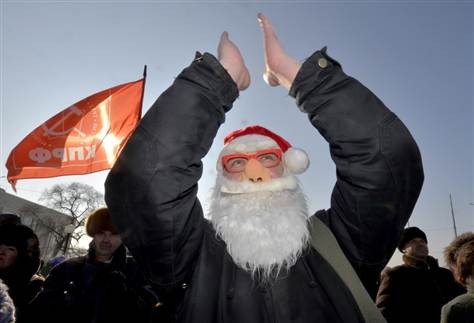
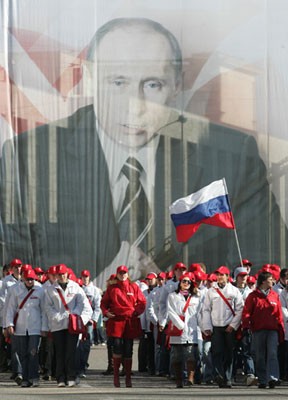 La nouvelle a inondé la toile comme un raz-de-marée. Il suffisait de taper le mot « élections russes » sur un quelconque moteur de recherche pour que des centaines et des centaines de sites ou de blogs reprenant tous la même dépêche – la plupart du temps à peine retouchée – soient recensés. Cette dépêche faisait état, sans ambages, de fraudes massives aux élections législatives russes du 4 décembre et reprenait comme une vérité biblique un obscur sondage attribué à l’ONG « l’Observateur citoyen ». Or ce sondage, qui a été en fait publié par l’institut
La nouvelle a inondé la toile comme un raz-de-marée. Il suffisait de taper le mot « élections russes » sur un quelconque moteur de recherche pour que des centaines et des centaines de sites ou de blogs reprenant tous la même dépêche – la plupart du temps à peine retouchée – soient recensés. Cette dépêche faisait état, sans ambages, de fraudes massives aux élections législatives russes du 4 décembre et reprenait comme une vérité biblique un obscur sondage attribué à l’ONG « l’Observateur citoyen ». Or ce sondage, qui a été en fait publié par l’institut 



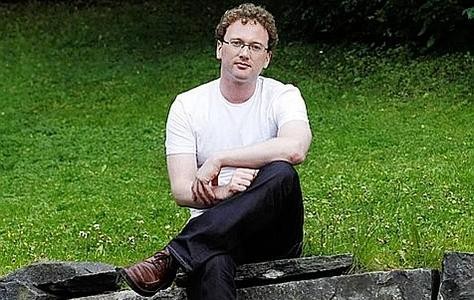

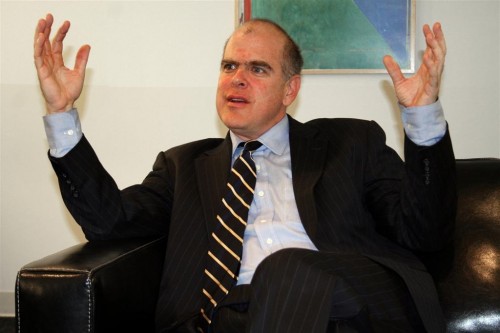
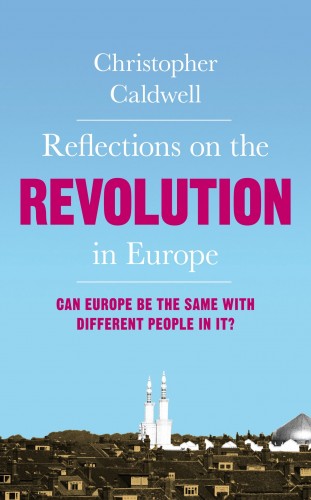 Éditorialiste au Financial Times (le journal officiel de la City) et rédacteur au Weekly Standard et au New York Times Magazine, Christopher Caldwell relève du courant néo-conservateur anglo-saxon. Il en remercie même William Kristol, qui en est l’une des têtes pensantes. L’édition française est préfacée par la démographe Michèle Tribalat qui, avec son compère Pierre-André Taguieff, semble ébaucher une sensibilité néo-conservatrice dans l’Hexagone plus charpentée que les guignols de la triste revue Le meilleur des mondes.
Éditorialiste au Financial Times (le journal officiel de la City) et rédacteur au Weekly Standard et au New York Times Magazine, Christopher Caldwell relève du courant néo-conservateur anglo-saxon. Il en remercie même William Kristol, qui en est l’une des têtes pensantes. L’édition française est préfacée par la démographe Michèle Tribalat qui, avec son compère Pierre-André Taguieff, semble ébaucher une sensibilité néo-conservatrice dans l’Hexagone plus charpentée que les guignols de la triste revue Le meilleur des mondes.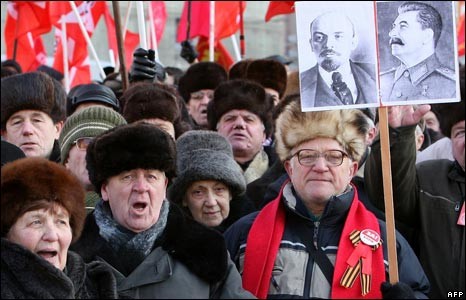

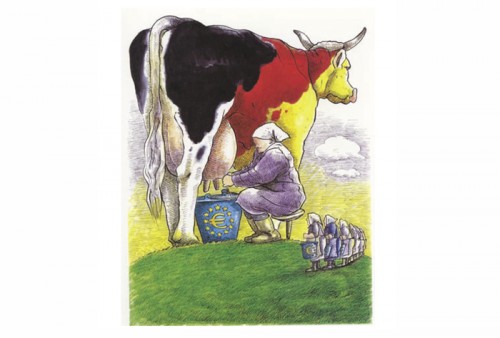
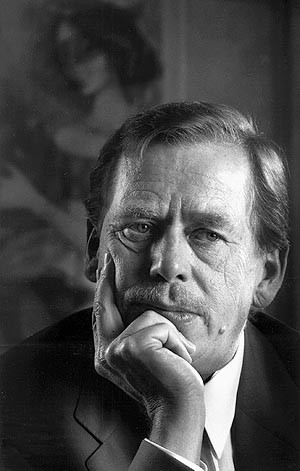 Václav Havel, the last president of Czechoslovakia and first president of the Czech Republic, died on December 18, 2011. His eulogies reveal him to be an excellent specimen for the study of the role of the “inner enemy” in the process of cultural pathology. In Havel we have a particularly devolved example of the Michel element that worked for the spiritual, political, cultural, and economic subjugation of the Western Cultural organism by the forces of cultural parasitism, distortion, and retardation. Indeed, the cultural pathologist can place him in the genus michelus along with such contemporaries such as Boris Yeltsin, Lech Wałęsa, and Mikhail Gorbachev.
Václav Havel, the last president of Czechoslovakia and first president of the Czech Republic, died on December 18, 2011. His eulogies reveal him to be an excellent specimen for the study of the role of the “inner enemy” in the process of cultural pathology. In Havel we have a particularly devolved example of the Michel element that worked for the spiritual, political, cultural, and economic subjugation of the Western Cultural organism by the forces of cultural parasitism, distortion, and retardation. Indeed, the cultural pathologist can place him in the genus michelus along with such contemporaries such as Boris Yeltsin, Lech Wałęsa, and Mikhail Gorbachev.


